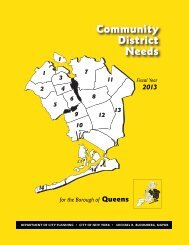Palm Oil Buyers Scorecard
WWF_Palm_Oil_Scorecard_2016
WWF_Palm_Oil_Scorecard_2016
Create successful ePaper yourself
Turn your PDF publications into a flip-book with our unique Google optimized e-Paper software.
APPENDIX 2: WHAT<br />
IS WWF DOING ON<br />
PALM OIL?<br />
WWF is working on several strategies<br />
to transform the market for palm oil,<br />
and make it more sustainable and<br />
deforestation-free.<br />
Because palm oil continues to be one of the major threats to forests and biodiversity in<br />
some of the world’s most important ecoregions, WWF works to transform the market<br />
to one that is sustainable and deforestation-free.<br />
WWF HAS BEEN<br />
ACTIVE IN PUSHING<br />
INITIATIVES THAT<br />
BUILD ON THE RSPO,<br />
SUCH AS RSPO<br />
NEXT AND POIG<br />
WWF is a founding member of the RSPO and is active in strengthening the RSPO<br />
standards and systems. We have published this and other <strong>Scorecard</strong>s to drive more<br />
transparency and consistency in RSPO reporting so we can judge whether users of<br />
palm oil are sourcing CSPO and to encourage producers to adopt more ambitious<br />
targets for certification.<br />
WWF has been active in pushing initiatives that build on the RSPO too, such as RSPO<br />
NEXT and POIG, to help show the way for innovation and best practice in the industry.<br />
We also work across the global palm oil supply chain with producers, buyers, investors,<br />
consumers and other NGOs to promote sustainable palm oil and deforestation-free<br />
supply chains.<br />
WWF employs a broad range of strategies, including:<br />
● one-on-one corporate engagement with companies<br />
● engagement in industry-wide bodies such as the Consumer Goods Forum and the<br />
Banking and Environment Initiative<br />
● promoting better management practices and sustainable land use planning to producers<br />
● encouraging palm oil buyers to use only sustainable palm oil<br />
● developing and promoting sustainable investment with the finance sector<br />
● raising awareness with consumers.<br />
WWF also lobbies governments in both producing and consuming regions to introduce<br />
policies that support the sustainable production and use of palm oil.<br />
We regularly publish research reports to highlight issues on the ground (see<br />
information about Tesso Nilo on page 56), plus practical tools and guidance for<br />
producers, buyers, consumers and the finance sector on how to be responsible growers,<br />
buyers and investors.<br />
In many countries WWF supports national initiatives on sustainable palm oil. Such<br />
initiatives are active in France, the UK, Germany, the Netherlands, Belgium, Sweden,<br />
Denmark and Singapore.<br />
55 WWF PALM OIL BUYERS SCORECARD 2016




